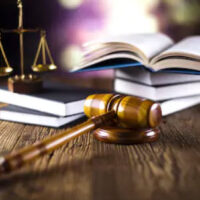The Power & Shortcomings of Forensics in Court

They call it the CSI Effect: the weight modern jurors place on forensic evidence provided by experts who convince them of the accuracy of their science. Today’s many tv crime drama shows have led many of us to believe that a laboratory can determine the guilt or innocence of any given individual. If you’ve been charged with criminal infractions, you may feel boxed into a corner by such evidence. But a seasoned criminal defense attorney knows that there is a lot of room to question the validity of conclusions put forth by such “experts.”
It’s Circumstantial
When a forensic investigator collects evidence such as hair samples, fingerprints, or blood samples, or when blood spatter evidence is analyzed, it is all subject to interpretation. Truly, the circumstance surrounding each piece of evidence is important to consider. Sure, the information gleaned from such evidence may be part of a case, but it’s never the entirety of a case. All kinds of issues– from chain of custody errors to contamination issues to misinterpretation problems—can limit the reliability of such evidence. In addition to these kinds of human errors, the science itself is often questionable.
For Example…
Blood evidence is often a central part of criminal cases. Most people don’t realize that blood stains are determined using a luminol/hydrogen peroxide spray. While the chemical reaction may yield evidence of blood, other substances, including horseradish and bleach, could produce the same luminescent blue glow. An expert could erroneously conclude that the area had previously been the scene of blood, when the truth is it had simply been disinfected with bleach. Even when actual blood samples are recovered, it is often good only to exclude someone, not to positively identify someone.
And This…
How reliable is hair analysis? On television, a strand of stray hair is often the key to linking a suspect to the crime scene. Nonetheless, one scientist who has worked in the forensic analysis of hair claims that such analysis holds little value in a courtroom outside of its ability to exclude a suspect. That’s because it’s nearly impossible to make an accurate match since the characteristics of hair are so common and similar from person to person.
Challenging Forensic Evidence
An experienced Kissimmee criminal defense attorney at the Salazar & Kelly Law Group, P.A. knows precisely how to challenge forensic evidence that is presented against you. Whether the problem is with the methods used to gather or process the evidence, the qualifications of the person testifying on its behalf, or the accuracy of the science itself, we will go to bat to ensure the optimum outcomes for you. To discuss your case, contact us for a confidential consultation today.
Resources:
mithsonianmag.com/smart-news/FBI-Admits-Pseudoscientific-Hair-Analysis-Used-in-Hundreds-of-Cases-180955070/
acs.org/content/acs/en/education/resources/highschool/chemmatters/past-issues/2016-2017/october-2016/forensic-evidence.html
